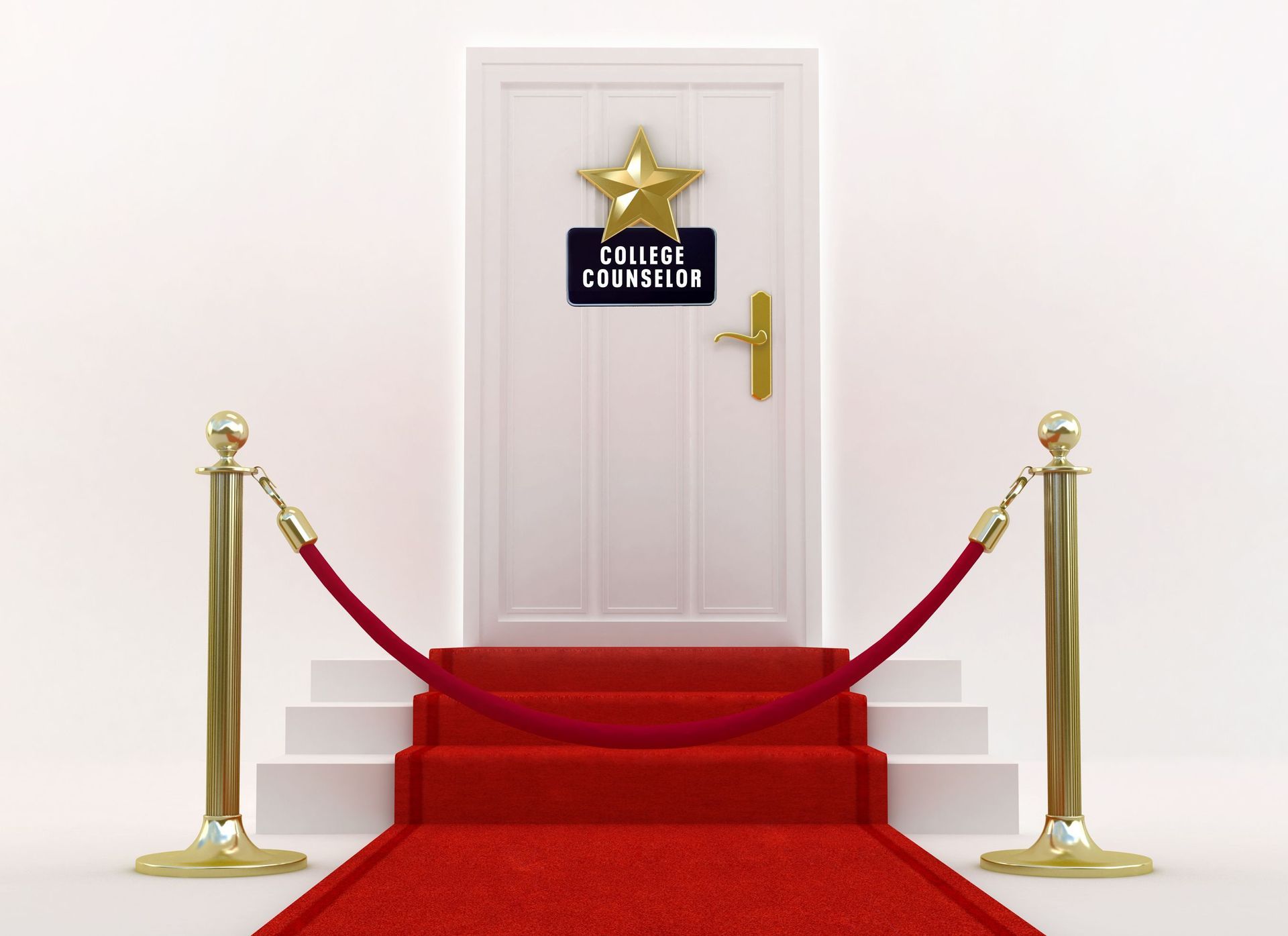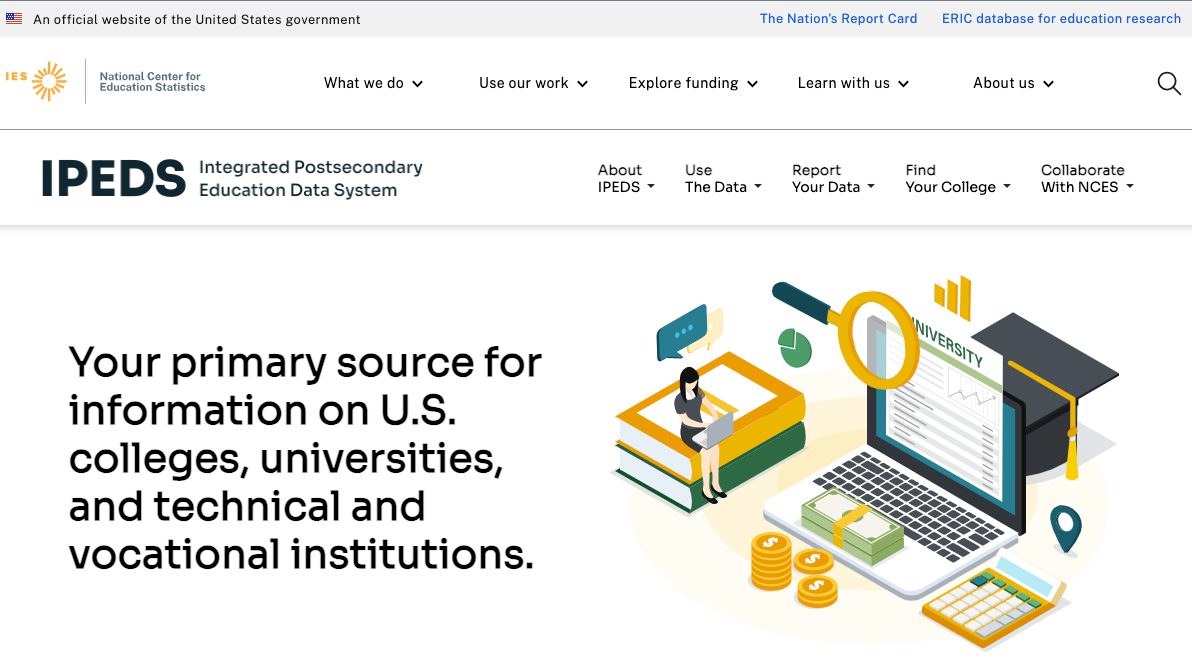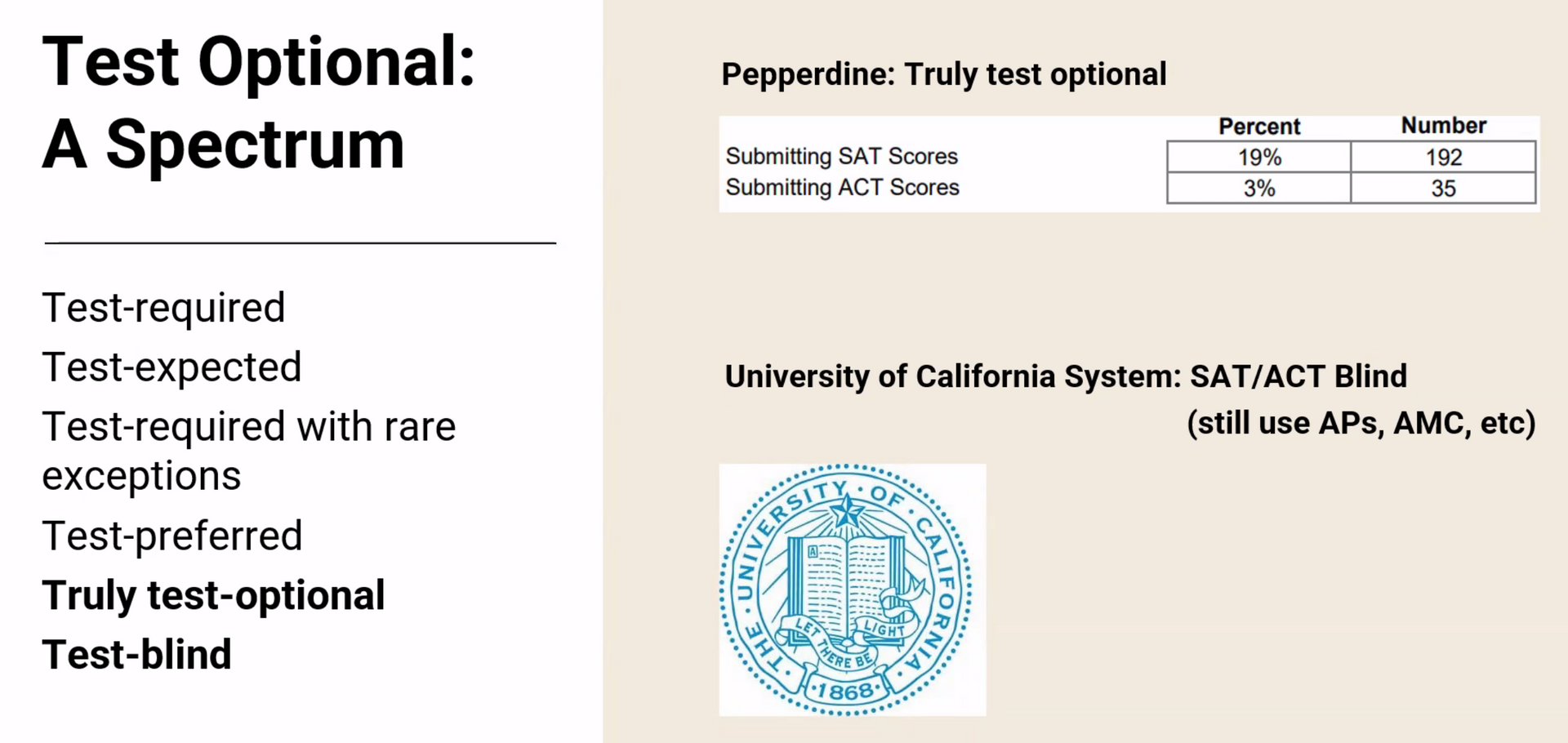How to Find a Great College Counselor (and Spot the Red Flags)

Choosing a college counselor, college planner, admissions advisor, school placement specialist, college care-taker, tarot card reader... is a big decision.
You’re trusting someone to guide your student (who is the kid you've invested so much in already because they are your child and you want nothing but the world for them) through a complex and high-stakes process (while they are clearly not concerned with your concerns and the clock is ticking).
And while the right counselor can make the journey empowering and clear, the wrong one can add unnecessary stress, cost, or confusion.
Here’s how to find a counselor who is truly qualified—and what signs might signal it’s time to keep looking.
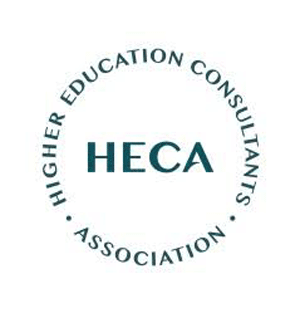
What Makes a Great College Counselor? What should I know about hiring a College Planner?
These are the questions parents have... here are some great answers!
Great College Counselors Prioritize Ethics and Boundaries
Strong counselors understand their role. They don’t write essays for students, promise admissions outcomes, or cross ethical lines. Instead, they act as mentors—helping students reflect, make informed decisions, and advocate for themselves with confidence. Ethical decision-making is foundational, and many counselors now choose to demonstrate their professionalism by voluntarily completing ethics-based training or quizzes, like those offered by CounselMore or attend professional development seminars with organizations like Higher Educational Consultants Association.
Great College Counselors Use Systems That Support Accountability and Progress
College admissions require timelines, data, and communication. That’s more than a spreadsheet. Counselors who use dedicated tools like CounselMore—which combines real-time admissions databases with a professional information-sharing network—are better equipped to keep students organized, on track, and prepared.
Every profession has its tools. A contractor shows up with either a clipboard or an iPad—you know which one inspires more confidence. Same goes for college counseling.
There’s no way to fake accountability. If a counselor says, “Just call me when you need me, and I’ll jot it down,” that’s not organization—that’s reaction. At best, it's a taskmaster or reminder service. But students can build their own reminder systems.
So what’s the counselor for?
A great college counselor steps back to see the full landscape—what preparedness really requires—and then zooms in to design the strategy: per student, per application, per requirement. They are just as accountable to the process as the student is. The difference is in roles. They don’t press the final submit button—but they absolutely know what that button represents to the student, to the parent, and to the admissions ecosystem. They have systems to rely on, so they've been able to look at the process from multiple points of view!
They come to the work prepared—with entry requirements at their fingertips and a repeatable, proven path to application readiness. They offer equitable - time, service, effort, and attention to every student, every time.
Software platforms liberate them to do just that—to focus on nuance, not spreadsheets. Data is for decision-making, not for drowning in logistics. Counselors using the right tools are free to think outside the box and help students navigate one of the trickiest processes they’ll ever face - what's next for me? Never mind the decisions mom and dad will have to consider!
These systems provide structure, transparency, and clarity—for both families and counselors—without relying on scattered emails or last-minute panic text-messages.
Rock Star College Counselors Personalize the Process without Straying from a Proven Practice.
You’ll know you’ve found a strong counselor when they start with your student—not with rankings, brand names, or prestige points. They design strategies that reflect who the student truly is: their values, strengths, and real aspirations—not what simply “looks good” on paper.
And if the student feels a little uncomfortable in the process? That’s often a sign that real work is happening. Growth—especially the kind that requires self-reflection and ownership—isn’t supposed to be easy. It should challenge. It should stir.
But great counselors don’t just rely on instinct—they follow a proven practice. They know what works because they’ve seen it work, over and over. They don’t operate from guesswork or generic checklists. They draw from experience, pattern recognition, and professional wisdom. And they use systems to make that wisdom actionable.
That information—their observations, insights, and outcomes—is stored in tools they can access at any moment. Systems that allow them to gather facts quickly, assess each situation with clarity, and offer families their best. Don’t be surprised when a great counselor introduces their software tools. There’s simply too much information to manage in a spreadsheet—or expect a person to carry in their head.
The process doesn’t really change. But the student does. The proven practice reflects the counselor’s experience; the software gives them the agility to adapt it for each student. That’s what allows them to personalize the process without losing structure or momentum.
Beyond having the knowledge - a great college counselor is trained to catch contradictions. To listen when a student lights up unexpectedly. To recognize when a deeper truth is surfacing. And they meet those moments with curiosity, not judgment—because that’s the real story that needs to come-to-life in the application.
This is the work:
helping a student uncover their most authentic self, then holding that story to a rigorous, time-bound application process that delivers results. It’s not about polishing a résumé—it’s about empowering a student to show up fully as themselves, and making sure the colleges see them too.

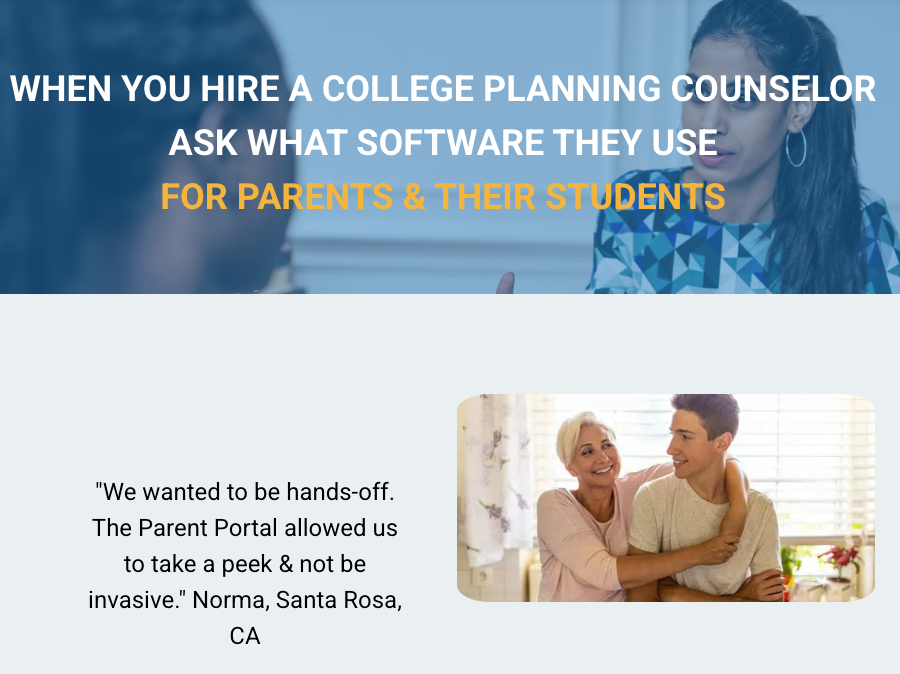
A Great College Counselor Stays Informed on How Admissions is Reacting to Global Events
College admissions doesn’t exist in a vacuum. From Supreme Court rulings on affirmative action to global disruptions like COVID-19, financial policy changes, or shifting attitudes toward standardized testing—higher education reacts, and the rules shift.
Great counselors don’t just react—they stay ahead. They monitor how colleges are adjusting in real time and know when new decisions impact deadlines, requirements, or student positioning. They’re plugged into professional communities that share live updates, insights from recent campus visits, and the inside story on evolving policies.
They stay connected through ongoing education, peer collaboration, and memberships in trusted organizations—and often use platforms like CounselMore to participate in information networks that centralize this collective knowledge in simplified terms.
Because when the rules change, families need more than reassurance. They need someone who’s already done the work to stay informed, so they can make smarter decisions, faster.
A Great College Planning Service will be Transparent About Experience and Pricing - How Much Should You Expect to Pay A Private College Counselor?
Great counselors don’t hide the ball. They’re upfront about what they offer, what it costs, and why it matters. Their experience, specialties, and pricing aren’t vague—they’re clear, deliberate, and easy to understand.
Whether they offer packages, hourly rates, or targeted services like athletic recruiting or learning accommodations, transparency is non-negotiable. It signals professionalism, builds trust, and sets the tone for a working relationship grounded in mutual respect.
If a counselor can’t clearly explain their services or how they charge for them, that’s not discretion—it’s a red flag.
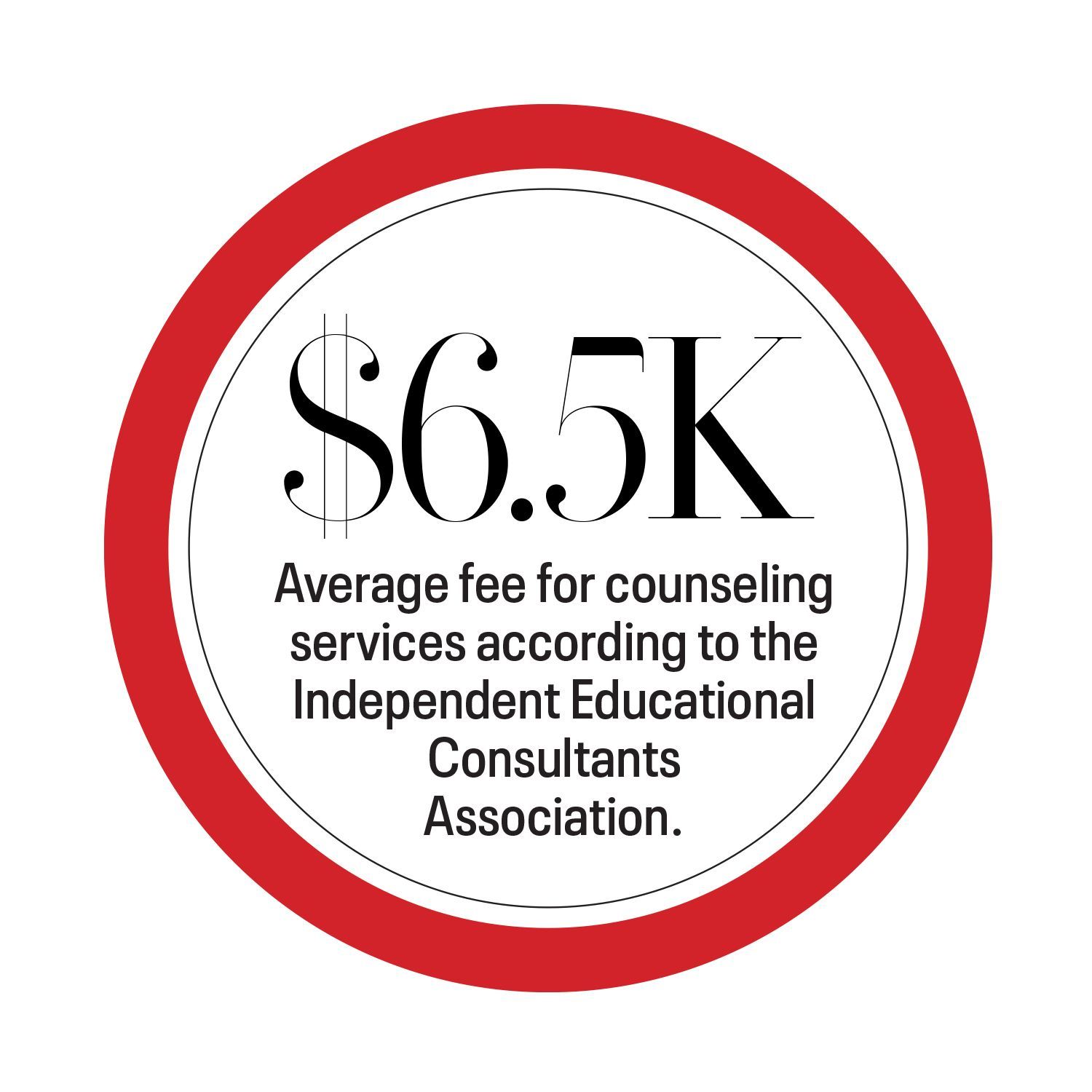
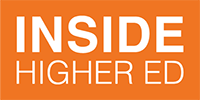
How Much Should You Expect to Pay A Private College Counselor?
You can expect to pay an upfront cost at the time of contract for comprehensive services that span from 11th grade through graduation, averaging around
$5,000 per student. That typically includes 15 college applications, essays crafted to match each institution, and a strategy designed for each individual application requirement. That’s a lot of strategy—and it doesn’t stop there.
The fee also covers the crucial early-stage work: preparing the student’s profile, building a narrative or theme, advising on summer programs, and shaping high school course plans. If your counselor starts with you in 9th or 10th grade, you can expect to pay more—but you’ll also gain the benefit of long-term planning, earlier insight, and a more thoughtful trajectory toward admissions.
That’s not to say counselors who charge more are out of line. Quite the opposite: the price is in the details. Time is money—and in this field, so is strategy. When a counselor brings a refined, proven approach built from years of experience, that premium reflects the quality and consistency of results. You're not just paying for time—you're paying for what that time is designed to produce.

🚩 College Counselor Red Flags to Watch Out For
❌ Guaranteed Admissions or “Insider Access”
No one—not even the most well-connected counselor—can guarantee admission. If someone promises preferential treatment or guaranteed outcomes, especially in exchange for a high “expedited service” fee, proceed with caution. That’s not guidance—it’s manipulation, and it can put your student’s future at risk.
❌ Over-Editing or Taking Over Student Work
If a counselor rewrites essays, inflates accomplishments, or suggests the student “stretch the truth,” that’s not support—it’s a liability. Colleges have zero tolerance for falsified applications. Admissions offers can be rescinded, even after acceptance, if any part of the application is found to be misleading. Authenticity isn’t optional—it’s essential. Ethical lines exist for a reason.
🚩 College Counselor Red Flags to Watch Out For
❌ Disorganization or Lack of Process
If you’re constantly unsure what’s due or feel like you're piecing things together from AI-generated meeting notes instead of seeing clearly outlined tasks driven by an intentional plan—that’s a problem. A great counselor provides structure, not stress. Today’s standard includes web-based planning tools, Google Drive integration, shared calendars, and clear workflows—not last-minute emails and guesswork.
And if your counselor is using the same tools your high school uses—consider it a red flag. School tools are built for school reporting, not for private advising.
They often collect student data, and when third-party platforms are involved, you don’t always know who has access—or how that data is being used.
Think about it: wouldn't it be tempting to pose as a helpful “college search engine” while collecting students’ hopes, dreams, and personal narratives under the guise of helping them “find the right fit”? That data is valuable—especially when it comes from the next generation of voters and consumers.
Some may shrug and say, “Everyone shares data—just give in.” But that’s not true. Your student’s records are protected under
FERPA, and you still have a right to privacy.
CounselMore never sells or shares student data. Ever. That matters.
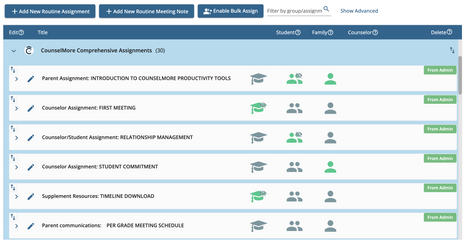

🚩 College Counselor Red Flags to Watch Out For
❌ Isolation from Professional Communities
A counselor who operates in a vacuum should raise concern. Membership in professional organizations like IECA, HECA, NACAC, and their regional affiliates signals a commitment to ethical standards, accountability, and continuous learning.
Even better—look for counselors who have taken the CounselMore College Counselor Ethics Quiz, a 125-question assessment covering ethics in higher education, student interaction, and professional conduct. Counselors who pass with a score of 95% or higher earn a trust badge they can display proudly. If a counselor avoids this kind of peer accountability, ask why.
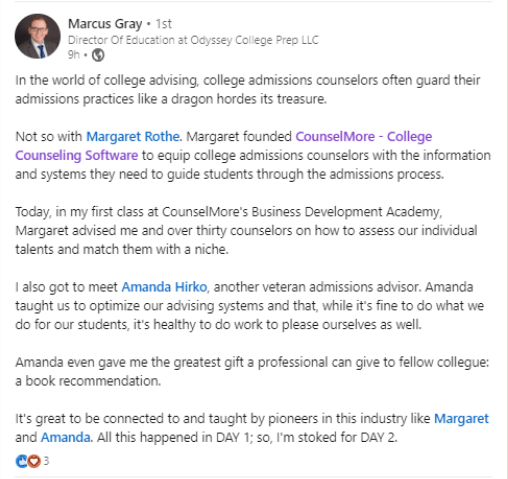
🔍 Questions to Ask When Interviewing a Counselor
Choosing a college counselor is an important decision. These questions will help you determine whether a counselor is working from a place of experience, structure, and integrity—or just winging it.
- What’s a current trend in college admissions that will impact my student’s profile or strategy?
(Listen for specifics—not buzzwords.)
- Do you create the initial college list and then collaborate with the student and family to finalize it?
(You want a process that starts with expertise and ends with consensus.)
- What software tools do you use—and is there a parent portal, or is it all spreadsheets and email chains?
(Modern tools matter. Ask what keeps everyone organized and informed.)
- Have you taken any recent professional development or ethics-based assessments?
(Bonus points if they’ve taken the CounselMore Ethics Quiz or belong to a professional association.)
- How do you support students who need accommodations or help with financial aid planning?
(Equity in access is a must, and their answer should show empathy and expertise.)

A Final Word: Looking for a College Planner? Find a Partner, Not a Promoter
The best college counselors won’t just “get you in.” They’ll help your student figure out who they are, what they want, and where they’ll thrive. They don’t chase prestige—they build confidence. They don’t just make lists—they shape plans.
And increasingly, they’re turning to systems and standards that reflect the seriousness of their work. They use professional tools not just to stay organized—but to stay accountable.
When a counselor invests in platforms like CounselMore, it’s not just about efficiency. It’s a sign that they take their role seriously. It means they’re prepared, accurate, and committed to ethical, student-centered practice—every time, with every student.
Because in the end, this process isn’t about who talks the biggest game. It’s about who shows up, does the work, and helps your student do the same.
-
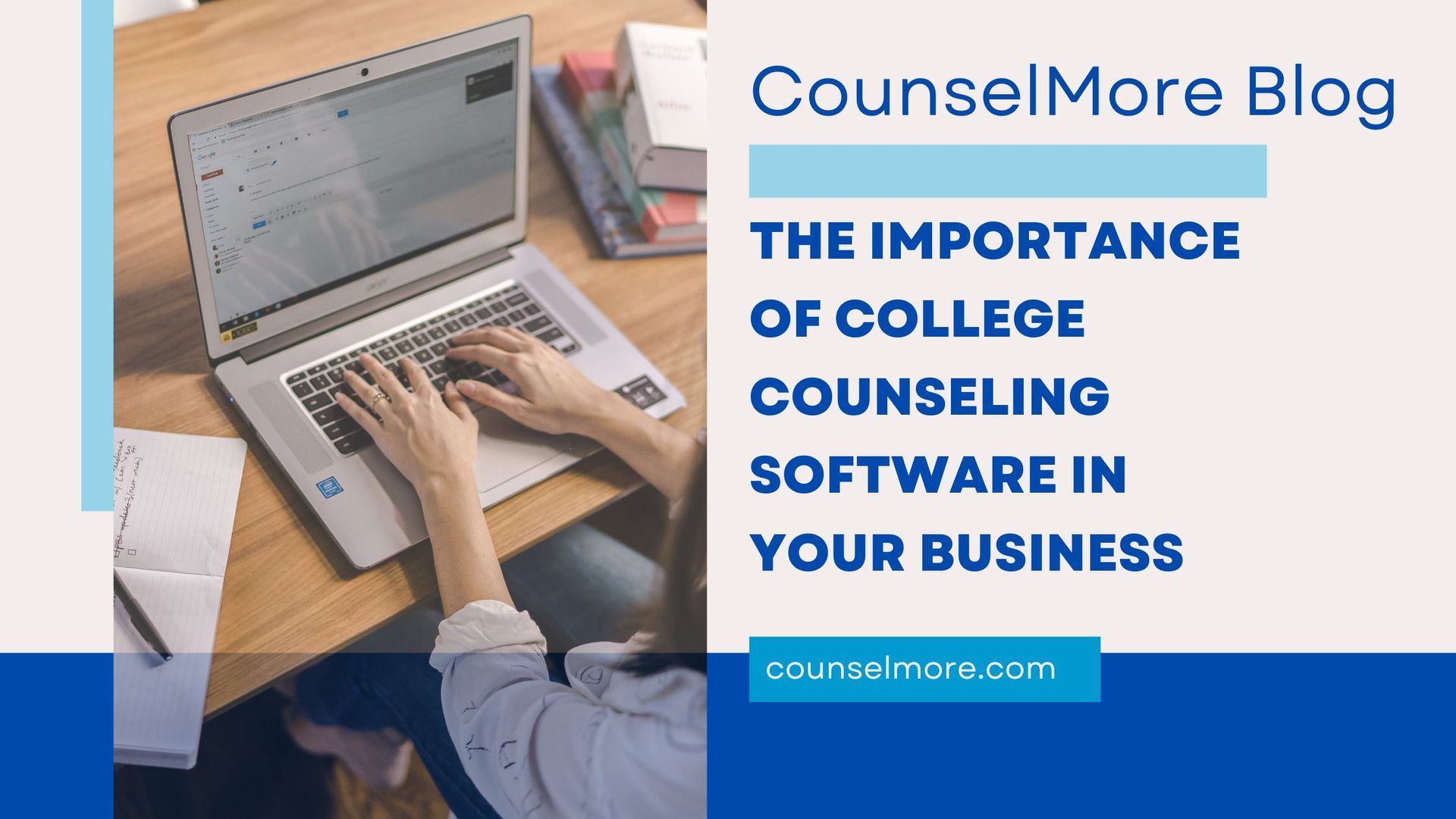 Read Now
Read Now -
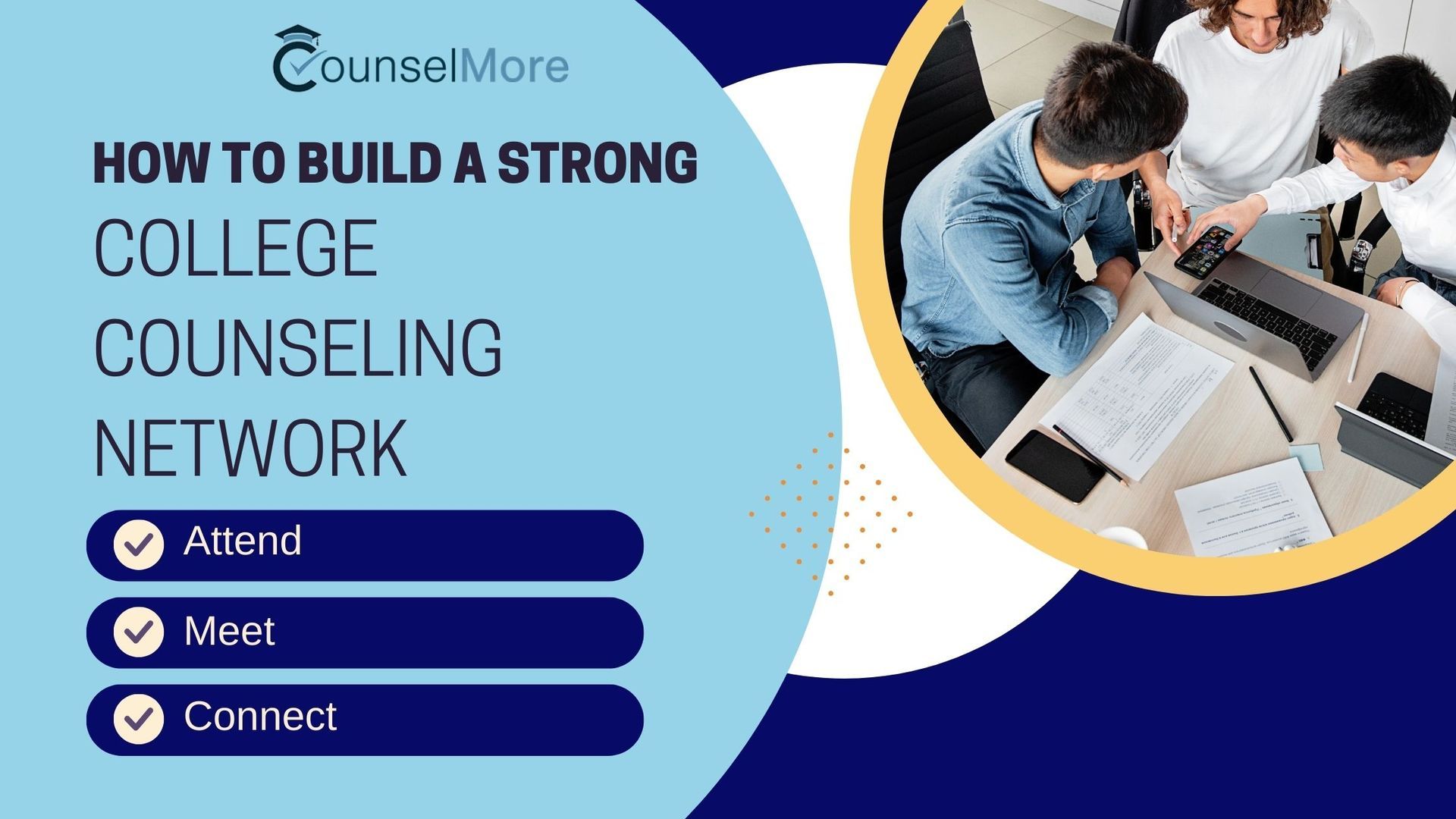 Read Now
Read Now -

Why Educational Planners Choose CounselMore
Read Now -

Aspiring IECs and College Counselors
Read Now -

Don't Miss This Chance
Post your article on the CounselMore Blog
Read Now -

CounselMore members enjoy more benefits
Read Now -

Slide title
Write your caption hereJoin your peer-professionals in conversations

